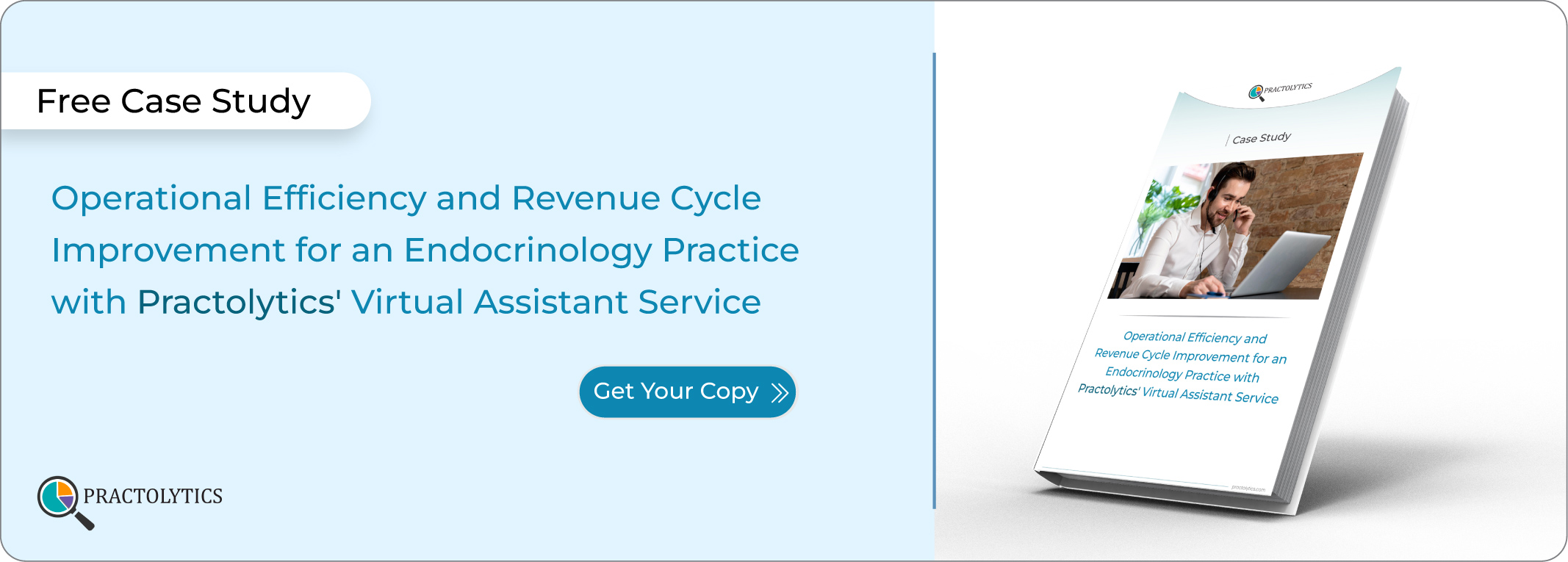Benefits of HIPAA-Compliant Virtual Assistant
Come on—running a healthcare practice is not just about great care anymore! Paperwork, appointments, patient inquiries, and billing- it is all on the agenda. And the biggest elephant in the room: protection of patient privacy under HIPAA throughout.
This is where a HIPAA-compliant virtual assistant comes in.
At Practolytics, we have worked with many practices in the U.S., and one consistent observation is how overworked doctors and their staff often are. This blog covers some of the benefits of HIPAA-Compliant virtual assistant can bring: help and one HIPAA compliant.
Table of Contents
What is a HIPAA-Compliant Virtual Assistant?
That is why before benefits, let us clear the meaning.
An assistant should understand securing patient data in a very stringent security way while performing sensitive tasks under HIPAA compliance. The assistant would be trained to do such things as answering patient calls, scheduling appointments, and documentation procedures so that all are handled in full compliance with Health Insurance Portability and Accountability Act (HIPAA) regulations.
In essence, seeking assistance while keeping patient confidentiality.
Benefits:
1. Reduced Administrative Burden
How many hours does your front desk spend on repetitive tasks every day? Probably more than you would like to admit. From confirming appointments to managing referrals, these activities—although important—are not the best utilisation of your valuable sit-down time.
Virtual assistant providers can assist with:
– Scheduling appointments
– Insurance verification
– Unpaid claims follow-ups
– Sending appointment reminders
– Updating patient records
Most importantly, they do these tasks securely and efficiently.
If you let an external resource handle these repetitive activities, your internal team can then focus on high-value interactions such as greeting patients and supporting clinical workflows.
2. Improved Patient Experience
Quick responses are expected by patients. Any delay in an appointment booking or prescription refill can create frustrations or, even worse, cause the customer to switch allegiance to a competitor.
A HIPAA-compliant virtual assistant capable of:
- Promptly responding to patient messages
- Handling pre-visit intake forms
- Handling follow-up calls
- Appointment and medication reminders
This ensures that even if your team is busy, a patient is really heard and cared for. This is to guarantee the confidentiality of all sensitive data involved, under the bounds of HIPAA guidelines.
3. More Time for Patient Care
Time is a luxury for most providers. Between back-to-back appointments and charting, your day can disappear in the blink of an eye.
Virtual assistants can take over time-consuming tasks like
- Chart preparation
- Transcribing visit notes
- Updating EHR systems
- Managing refill requests
All of this means more time for what matters most—patient care.
And when your support team works in sync with your clinical staff, the entire practice runs smoother and more efficiently.
4. Compliance Peace of Mind
HIPAA compliance isn’t optional—it’s the law. But staying compliant can be a constant worry, especially when outsourcing support.
Here’s the good news: A HIPAA-compliant virtual assistant is trained to protect patient privacy at every step. That includes:
- Using secure communication platforms
- Avoiding unauthorised access to records
- Following data handling protocols
- Signing Business Associate Agreements (BAAs)
When you partner with a company like Practolytics, you don’t have to worry about whether your assistant is compliant—we handle the training, screening, and monitoring for you.
5. Cost-Effective Staffing Solution
Hiring full-time in-house staff can be prohibitive that is on top of salaries, benefits, and office space.
Virtual assistant services provide a cheaper and flexible option.
You only pay for several hours you need. There is no overhead involved, no commitments made to long-term contracts, and definitely no additional HR issues to deal with.
Furthermore, considering these assistants have been trained for working in healthcare environments, one can think of the upside: you do not have to train them; your support staff is already set to work the very first day.
6. Better Work-Life Balance for Providers
Let’s not forget about you, the provider.
Today, many physicians experience burnout due to the unending demands of the job. When a Virtual Assistant carries out any non-clinical errands, the provider may:
- Go home on time
- Give undivided attention during patient visits
- Spend less time on after-hours documentation
- Feel less overwhelmed
This, in turn, is good for your mental well-being and is good for the patients. An able-bodied, less stressed physician is a good physician.
7. Scalable Support as You Grow
Planning to expand your practice? Or maybe you’re seeing a seasonal spike in patient volume?
A HIPAA-compliant virtual assistant can scale with your needs. You can increase or decrease support based on your schedule, without the hassle of hiring and training new staff every time.
This is especially useful for practices with multiple providers or locations.
8. Supports Specialty Practices
Every specialty comes with its unique workflows. Whether you’re running a cardiology clinic, family medicine practice, or an endocrinology centre, your assistant should be familiar with your specific needs.
At Practolytics, our virtual assistants are trained in a variety of specialties. They understand:
- Specialty-specific terms
- Coding and billing nuances
- Workflow best practices
- EHR templates for your field
This means fewer errors, faster onboarding, and better communication with your patients.
9. A True Extension of Your Team
Some people worry that outsourcing support will make things feel impersonal. But with the right setup, a HIPAA-compliant virtual assistant becomes a natural part of your team.
They can:
- Join daily huddles via video call
- Coordinate with your in-house staff
- Receive ongoing training as your needs evolve
You get the help you need without sacrificing the culture or values of your practice.
Conclusion:
Healthcare is rapidly changing these days. Patient expectations are much higher. More administrative work is coming in, and compliance regulations are getting stricter.
A HIPAA-compliant virtual medical assistant, far from being an optional tool, is a very smart and secure working relationship that gives your practice an inside-out makeover.
It is important for us at Practolytics to enable you to make that transition without any glitches. Part-time help or a full-time virtual team? We provide you with trained professionals who understand the nuances of healthcare, respect the importance of HIPAA, and truly care about helping you succeed.
Read More – From Chaos to Efficiency: A Small Practice’s Journey with a Virtual Assistant
Talk to Medical Billing Expert Today — Get a Free Demo Now!





